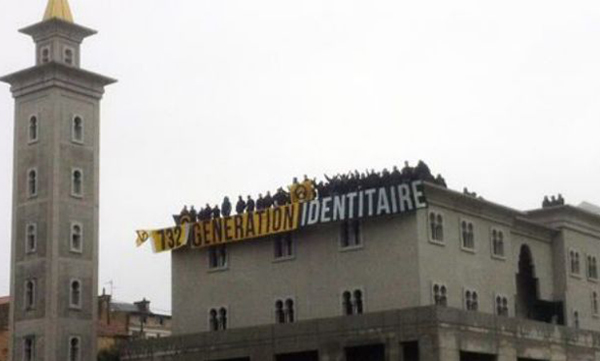
Paris, October 21: A group of extremists has stormed an unfinished mosque in the historic city of Poitiers in western France in a display of animosity toward Islam.
Seventy-three protesters travelled from all over France to the city to take part in the anti-Islam demonstration on Saturday.
They gathered at the mosque before dawn, and disrupted a prayer, chanting and waving banners protesting against the construction of mosques and the immigration of Muslims.
They also climbed onto the roof of the mosque and unfurled their banners.
"We are thunderstruck… these are people who are stuck in the year 732, and who don't see that the world has changed,” local Muslim leader and imam Boubaker al-Hadj Amor said, referring to the Battle of Tours, which occurred in Poitiers in that year, with Charles Martel leading the Christian army in a victory that halted the Muslims' furthest advance into Europe.
French Prime Minister Jean-Marc Ayrault “firmly” condemned the action as a “provocation that reveals an unacceptable religious hatred.”
Interior Minister Manuel Valls also condemned the "hateful and inadmissible provocation" and the "questionable confusion" of the group.
The International League against Racism and Anti-Semitism called the occupation a “demonstration of hate.”
According to the regional prefect, Yves Dassonville, the protesters dispersed when police arrived and detained four people, who said they were the organizers, for questioning.
The police started investigating “an unauthorized demonstration, incitement to racial hatred, participation in a gathering with a view to carrying out joint damage.”
Charges of theft are also probable as they also removed ten of the mosque's carpets and took them to the roof, where they were damaged by rain.
“We were planning to stay longer, but as we had no intention whatsoever of a physical confrontation, we are leaving with the police in a good mood without an unhappy ending,” a spokesman for the demonstrators said.
Finally, the extremists were compelled to evacuate the mosque at 1:00 p.m.





Comments
Add new comment